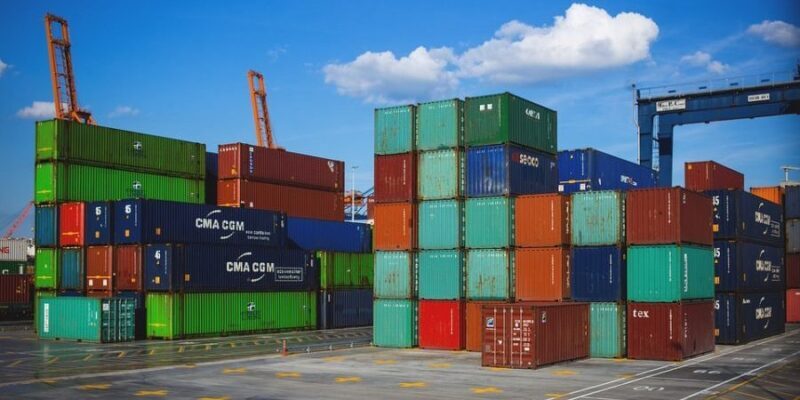Tanzania has officially launched operations at the new Kwala dry port located in Pwani Region, in a bold move aimed at easing heavy congestion at the Dar es Salaam seaport and modernising the country’s transport and logistics infrastructure.
The dry port, now fully operational, is expected to absorb up to 30% of cargo currently passing through Dar es Salaam Port, one of East Africa’s busiest maritime gateways. The launch comes after a series of high-level agreements signed between the Tanzania Shipping Agencies Corporation (TASAC), Tanzania Ports Authority (TPA), Tanzania Railways Corporation (TRC), Tanzania Revenue Authority (TRA), the Tanzania Shipping Agents Association (TASAA), Tanzania East Africa Gateway Terminal Ltd. (TEAGL), and Dubai-based logistics company DP World.
The inauguration marks a turning point for Tanzania’s logistics and trade systems, with officials saying the inland port will help cut cargo turnaround times, reduce shipping delays, and significantly lower transport costs for importers and exporters in the region. According to the Ministry of Transport, the project is part of a broader plan to turn the country into a major regional logistics hub.
The Kwala dry port is designed as a high-capacity inland logistics terminal. It links directly to the central railway line, which has recently undergone upgrades, to enable faster transportation of containers from the coast to the interior and beyond. This means landlocked countries such as Rwanda, Burundi, and the Democratic Republic of Congo (DRC) can now move goods more efficiently through the Central Corridor, bypassing many of the delays that have previously slowed trade.
According to officials, this new facility will improve cargo handling, reduce congestion at the Dar port, and strengthen regional economic integration. The dry port is also expected to serve as a customs clearance centre, enabling goods to be cleared further inland, thereby freeing up critical space at the coastal terminal.
Speaking at the commissioning ceremony, Transport Ministry officials stated that the facility is aligned with Tanzania’s long-term infrastructure plan to build a modern, interconnected logistics ecosystem. This includes expanding port operations, revamping rail infrastructure (both standard and metre-gauge lines), and constructing multimodal transport networks to support regional industrialisation and trade.
The participation of DP World, one of the world’s largest logistics companies, underlines growing foreign investor confidence in Tanzania’s infrastructure sector. DP World has already been involved in port operations in Dar es Salaam, and its extension into inland dry port logistics further cements its role in East Africa’s trade development.
Trade analysts say the Kwala port will not only decongest Dar es Salaam port but also create new employment, attract investment, and boost export and import efficiency. It is also expected to streamline customs processes, improve supply chain transparency, and reduce the risk of damage or theft during cargo transit.
For landlocked countries relying heavily on the Central Corridor, the Kwala dry port is a game-changer. It provides faster access to sea routes, improves trade timelines, and reduces dependency on trucks for long-haul inland transportation—helping to lower freight charges and environmental impact.
Tanzania has been making steady progress in developing its infrastructure, and this new facility adds to other major projects like the Standard Gauge Railway (SGR), upgrades at Dar es Salaam Port, and road linkages to neighbouring countries. All these efforts are part of a national vision to transform the country into a regional logistics and trade powerhouse.
With growing competition from ports in Mombasa (Kenya), Beira (Mozambique), and Durban (South Africa), Tanzania is positioning itself strategically to capture a larger share of East and Central Africa’s import-export traffic. The opening of the Kwala dry port gives the country a strong head start in the race to become the region’s preferred logistics gateway.
